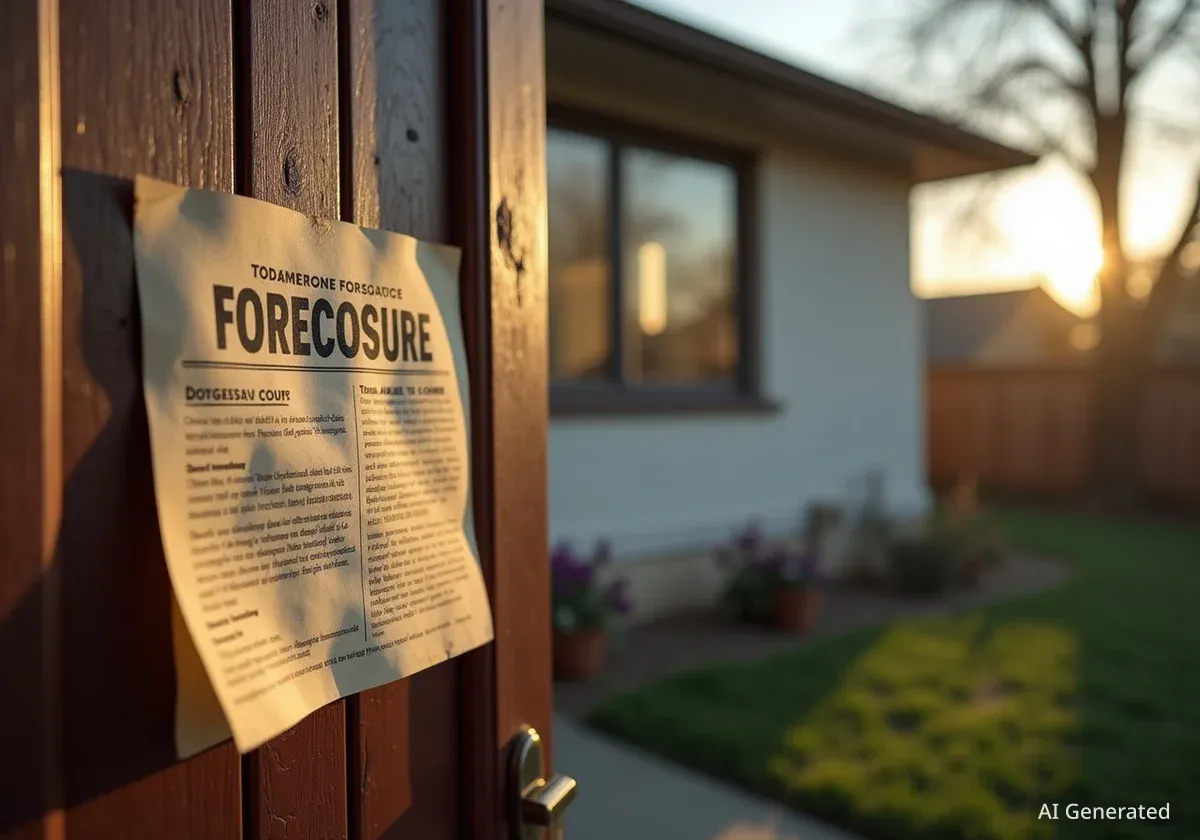Illinois remains the only state in the nation that has not reformed its property tax sale laws, a system that allows private investors to acquire homes for a fraction of their value over small unpaid tax bills. This practice continues despite a 2023 U.S. Supreme Court ruling that declared similar systems unconstitutional, leaving thousands of homeowners in a vulnerable position.
For decades, a state-sanctioned process has enabled investors to seize the full equity of a property, even when the outstanding tax debt is minimal. Now, following the landmark court decision, Illinois faces mounting legal pressure to overhaul a system that critics argue amounts to state-sanctioned theft of private property.
Key Takeaways
- Illinois allows private investors to buy property tax debt from counties.
- If the debt is not repaid with interest, investors can take ownership of the entire property.
- A 2023 Supreme Court ruling found such practices unconstitutional.
- Illinois is the only state that has not reformed its tax sale laws following this ruling.
- Homeowners, particularly the elderly and financially vulnerable, are at high risk of losing their homes and all accumulated equity.
Understanding the Illinois Tax Sale System
The process begins when a homeowner falls behind on their property taxes. In Illinois, county treasurers are authorized to sell this delinquent tax debt to private investors at public auctions. This mechanism allows the county to receive its tax revenue immediately.
The winning bidder, typically a private investment firm, pays the overdue taxes. In return, they gain the right to collect the debt from the homeowner, along with substantial interest and fees that can quickly escalate the total amount owed.
From Small Debt to Complete Loss
Homeowners are given a redemption period, usually two to three years, to pay back the investor. However, if they fail to settle the debt within this timeframe, the investor can petition a court for the property's deed. If successful, the investor acquires the home outright.
Crucially, the homeowner loses not just the property but all of their equity. For example, a homeowner could owe a few thousand dollars in taxes on a home worth $300,000. If they cannot pay the debt, they lose the entire $300,000 value of their home, a practice critics call "home equity theft."
A Disproportionate Consequence
Under the current Illinois law, a homeowner could owe as little as 1% of their home's value in back taxes and still lose 100% of their equity. The original debt is often dwarfed by the value of the asset seized by the investor.
The Supreme Court Sets a New Precedent
The legal landscape for tax sales shifted dramatically in May 2023 with the Supreme Court's unanimous decision in Tyler v. Hennepin County, Minnesota. The case involved a 94-year-old woman whose condominium was seized over a $15,000 tax debt and sold for $40,000. The county kept the entire proceeds.
Chief Justice John Roberts, writing for the court, stated that the government cannot seize more than what is owed. The ruling established that any surplus equity remaining after the tax debt and costs are paid belongs to the original property owner.
"The taxpayer must render unto Caesar what is Caesar's, but no more," the court's opinion concluded, reinforcing the protections of the Fifth Amendment's Takings Clause, which prohibits the government from taking private property for public use without just compensation.
A Nationwide Rush to Reform
The Supreme Court's decision prompted an immediate response from states with similar tax sale laws. Legislatures across the country moved quickly to amend their statutes to comply with the ruling and avoid legal challenges. States like Maine, Nebraska, and others have since passed reforms to protect homeowners' equity.
This wave of reform has left Illinois as a conspicuous outlier. Despite the clear constitutional mandate from the nation's highest court, the state's legislature has yet to pass any new laws to address the issue.
What is Home Equity?
Home equity is the market value of a homeowner's unencumbered interest in their real property. It is calculated by subtracting the total outstanding balance of all liens (like a mortgage) from the property's fair market value. For many families, it represents their largest financial asset and a primary source of generational wealth.
Illinois Remains the Last Holdout
As the sole state without reformed tax sale laws, Illinois continues to operate a system that is now considered unconstitutional. This exposes both homeowners and county governments to significant legal and financial risks.
Advocacy groups and legal experts warn that every tax sale conducted under the old system is a potential lawsuit. Homeowners who have lost their properties could sue counties for the unconstitutional seizure of their home equity, potentially leading to millions of dollars in liability for local governments.
The Push for Legislative Action
There is an ongoing legal and political battle to compel Illinois to change its laws. According to reporting from the Illinois Answers Project, reform efforts have so far stalled in the state legislature. The reasons for the delay are complex, involving lobbying from the tax buying industry and legislative inertia.
Meanwhile, vulnerable residents remain at risk. The system disproportionately affects senior citizens on fixed incomes, individuals with medical problems, and low-income families who may struggle to pay a small but unexpected tax bill. These homeowners often lack the resources to navigate the complex legal process required to save their homes.
What's Next for Illinois Homeowners?
The future of property tax sales in Illinois is uncertain. Without legislative action, the state's counties will continue to operate under a legally precarious framework. Legal aid organizations are preparing for an influx of cases from homeowners who have lost their property equity since the 2023 Supreme Court decision.
The key question is not if, but when, Illinois will align its laws with the constitutional standard set by the Supreme Court. Until then, the financial security of thousands of homeowners hangs in the balance, threatened by a system that allows for the complete forfeiture of a lifetime of savings over a minor debt.





